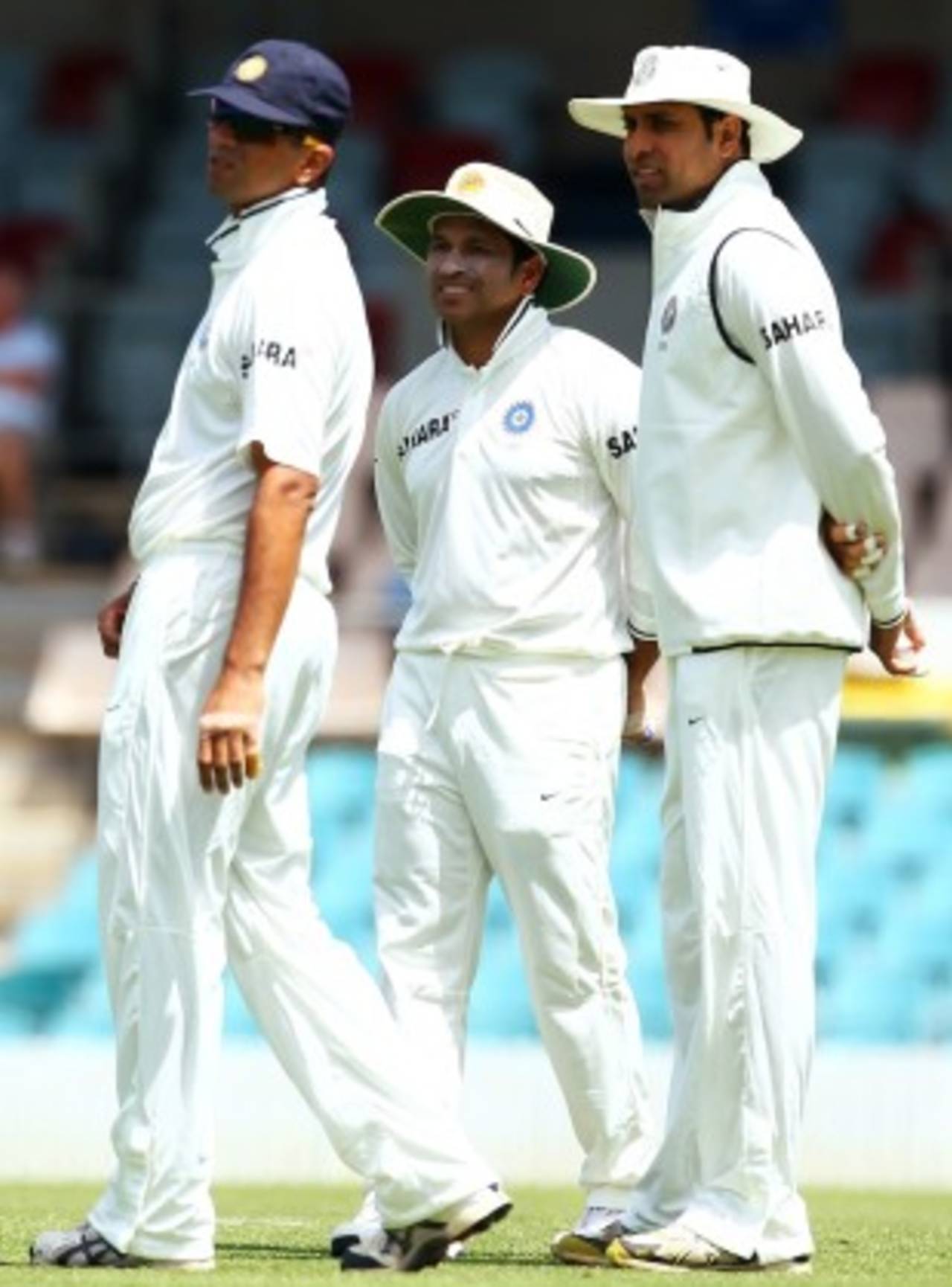'India, your sport needs you'
Wisden has a new editor and Lawrence Booth has set the tone with an Almanack that thunders out
Duncan Hamilton
11-Apr-2012

Lawrence Booth: "The disintegration of India's feted batting line-up has coincided with the rise of a Twenty20-based nationalism, the growth of private marketeers and high level conflicts of interest. It is a perfect storm" • Getty Images
The editor of Wisden has an Orwell-like duty to be so strongly individual that his face can be imagined on the pages he's written. His Notes need to celebrate, explain, chivvy, rebuke and, if necessary, express uncomfortable truths. The rest of what constitutes a "good" Wisden must be the joint creation of poets and manual workers: a judicious, lyrical mix of contemporary issues, historical reflection and cold statistics. The Almanack's 149th edition - the first under the stewardship of Lawrence Booth - fulfils these criteria. There is an enormous amount to commend it; not least the force of Booth's opinions, which are muscularly robust and lucid. This Wisden thunders out.
The themes he chooses - and the tone in which he expresses himself - will chime with the core readership; principally those who constantly fret that some summer soon cricket's calendar will comprise only Twenty20 gaudiness punctuated by an occasional Test and a scaled-down Championship.
If Booth's prognosis for cricket is gloomy in places, it is because there are things to be gloomy about. Too many Tests outside England are watched by crowds disguised as empty seats, and a stroll around any county ground will reveal the average age of a Championship audience as pensionable. Booth describes the Championship as barely "tolerated" nowadays by those who see it as hopelessly anachronistic - "analogue cricket in a digital age". He foresees the competition altering its format again in futile pursuit of a level of popularity it can never attain because, shorn of England's Test team, it lacks sufficient glamour. Crucially Booth also believes the accepted aims of domestic cricket - to both exist in its own right and to supply players for England - are "out of kilter". Nor is he optimistic about the prospects of correction.
The guilty men, he stresses, are cricket administrators glad to rake in the money T20 generates but who shut both eyes to the damage it causes. He criticises them for insincerity: talking up the primacy of Tests - "stated so often as to have lost any meaning", he says - while simultaneously scheduling more meaningless T20 fixtures to undermine it still further. "The sport stands on a precipice," he insists. "It is there because of cricket itself. More specifically, it is because of Twenty20, a Pandora's Box masquerading as a panacea."
In this regard Booth gives India a slap around the chops, too. "The skewing of Indian sensibilities away from Tests would cause less alarm if their powerbrokers were on top of their brief," he argues, making the statistical point that the IPL and the Champions League swallow up almost a fifth of the year - "giving rise," he continues "to the malaise known as cricket fatigue". He adds bluntly: "India have ended up with a special gift; the clout to shape an entire sport... But too often their game appears driven by the self-interest of the few... Other countries run the game along self-serving lines too; cricket's boardrooms are not awash with altruism. But none wields the BCCI's power, nor shares their responsibility. The disintegration of India's feted batting line-up has coincided with the rise of a Twenty20-based nationalism, the growth of private marketeers and high-level conflicts of interest. It is a perfect storm. And the global game sits unsteadily in the eye. India, your sport needs you."
Elsewhere Booth has commissioned well. Gideon Haigh's "Fear and Loathing in Dubai", exploring the political, commercial and organisational machinations of the ICC, is fine enough to be published as a standalone essay. Mike Brearley, Michael Yardy and Dr Kamran Abbasi perceptively offer insights on cricketers and the demon of depression. Simon Hughes examines the science - data collection and electronic gadgetry - that contributed to England topping the world. Michael Henderson reminiscences beautifully on his boyhood and the end of his beloved Lancashire's 77-year wait for a title outright.
To mark the 50th anniversary of the abolition of the distinction between amateur gentleman and professional, Colin Shindler explains why class division was unsustainable. Peter Gibbs* mines the same era in recalling "A Day with SF Barnes".
It is 1964. The Great Man is 91 and not known for cordiality. Barnes is told Gibbs is an Oxford Blue and an opening batsman. "The old boy reacted as if he'd been asked to accommodate a scorpion in his pants," writes Gibbs. This is my second-favourite phrase in 1500-plus pages. My first is Tanya Aldred's description of the broad, yeoman figure of Tim Bresnan, one of the Five Cricketers of the Year, alongside Kumar Sangakkara (who is also named international cricketer of the year), Glen Chapple, Alastair Cook and Alan Richardson. Of Bresnan, Aldred writes: "He still has the air of a man with an emergency cheese sandwich in his back pocket." Quite brilliant.
Wisden, 149th edition
edited by Lawrence Booth
Hardback and softcover, £50
Large format £60
Abridged ebook £12.99
edited by Lawrence Booth
Hardback and softcover, £50
Large format £60
Abridged ebook £12.99
*11.45 GMT, April 11, 2012: This article was amended. Paul Gibbs was changed to Peter Gibbs
Duncan Hamilton is twice winner of the William Hill Sports Book of the Year award. A Last English Summer (Quercus Sport) is an affectionate study of a county game that by 2009 "looked directionless and obsolete"